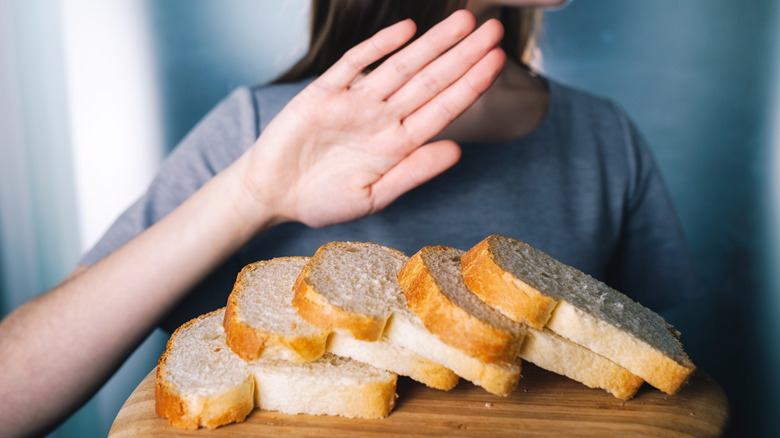Is A Grain-Free Diet Actually Healthy?
The grain-free diet has become popular in recent years. It is similar to a gluten-free diet but has some key differences. Here's what you should know about this eating plan.
As the name suggests, a grain-free diet eliminates all grains and foods derived from grains (via Healthline). This includes foods containing wheat, barley, rye, and spelt. It also means avoiding gluten-free ingredients like dried corn, millet, rice, and oats. Some popular foods that are not allowed to be eaten on a grain-free diet include bread, cereal, oatmeal, pasta, and many baked goods.
According to Healthline, a grain-free diet can offer several health benefits. It is usually recommended for people with certain autoimmune diseases, as it can help reduce inflammation often caused by these health conditions. A grain-free diet can also be helpful to people with food intolerances or IBS. Finally, it may aid in weight loss because the diet naturally eliminates many foods that are high in calories but low in nutrients, like cookies, pizza, and white pasta.
This diet is unnecessary for most people
Although a grain-free diet can be beneficial to people with certain health conditions or food intolerances, experts agree it is unnecessary for most people. "Who says grains are a problem?!" Nancy Z. Farrell, MS, RDN, spokesperson for the Academy of Nutrition and Dietetics, told The Healthy. "If you go grain-free you're potentially setting yourself up for deficiencies of important vitamins, minerals, and nutrients."
Many grains are an excellent source of fiber, B vitamins, and other nutrients. According to Healthline, there is "overwhelming scientific evidence" that whole grains like quinoa, oats, and rice, are good for you. While it's smart to limit refined grains in your diet like white flour that strips the original grain of most of its nutrients, there isn't a great reason to cut out whole grains unless you've been directed by a doctor.
"I really worry about people who exclude entire food groups," Angie Murad, a registered dietitian nutritionist with the Mayo Clinic Healthy Living Program, told Healthline. "Having grains is fine. Choosing the right type of grains is a bigger factor."
Even though going grain-free might be trendy, it probably isn't necessary for you.


